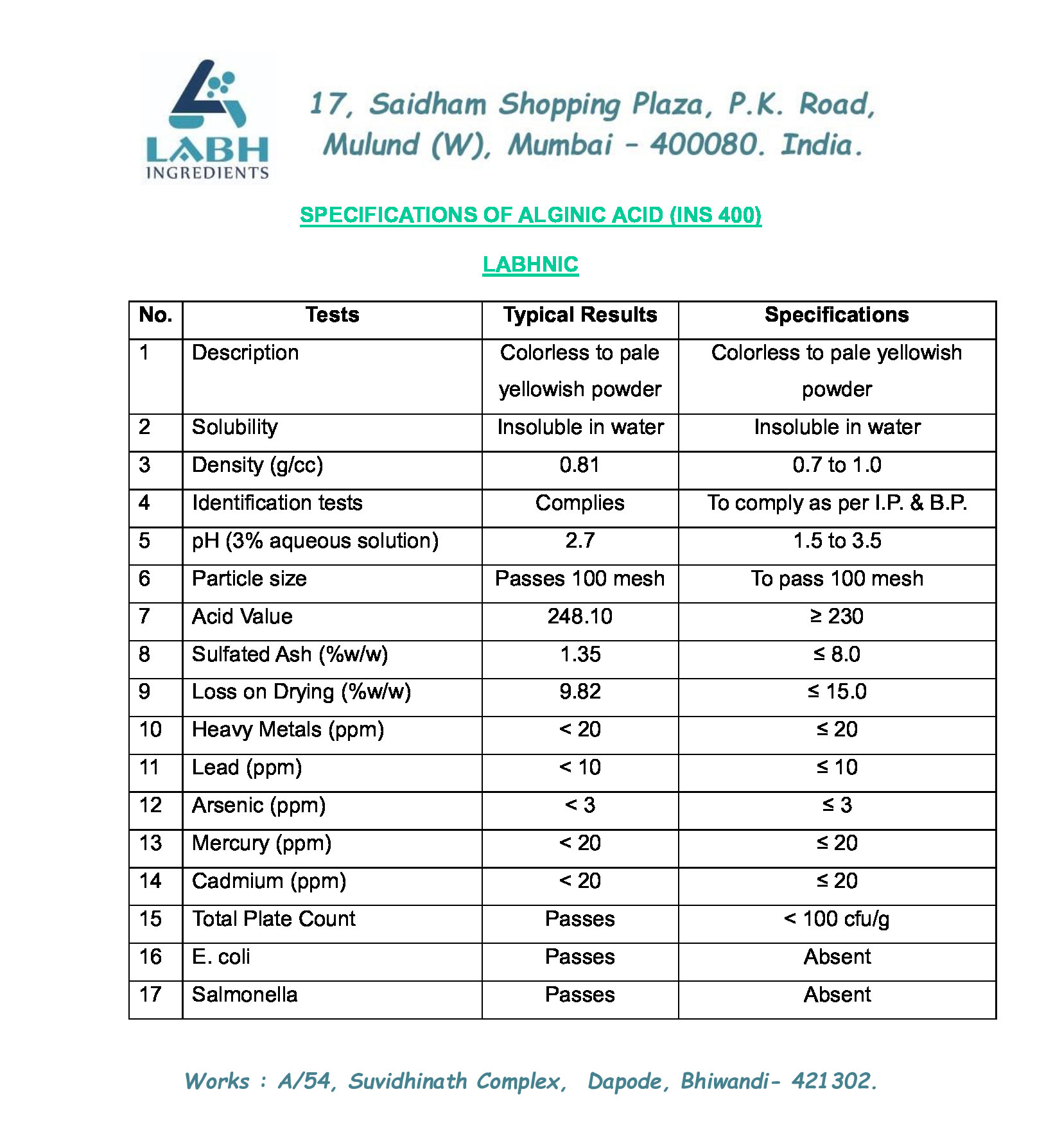Alginic Acid, (C14H22O13), INS 400, is a natural algal polysaccharide biopolymer formed from chains of polyuronic acids and is extracted from algae in seaweeds like Laminaria.
Alginic acid can absorb 200-300 times its weight in water and solutes at low pH yielding a high viscosity, high pH gel.
Since alginic acid is insoluble in water, it alone does not function as a thickener or gelling agent. To dissolve alginic acid in water, it is necessary to adding alkali. Alginic acid is made soluble by adding monovalent cations such as sodium, potassium or ammonium. However, it becomes insoluble when polyvalent cations like calcium or iron are present. In spite of its insolubility in water, special processing can be used to make a type of alginic acid that easily absorbs water and swells.

Alginic Acid - LABHNIC
This swelling type of alginic acid increases its apparent viscosity when it absorbs water & becomes a swelled liquid like starch paste. Thus, alginic acid can be broadly divided into two types: swelling and non-swelling. Alginic acid is known to be more susceptible to heat than sodium alginate and other alginate salts. Its molecular weight (degree of polymerization) decreases over a short period of time. In order to retains its molecular structure, storage at the lowest temperature possible is required.
Uses

